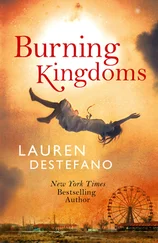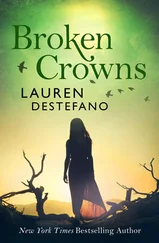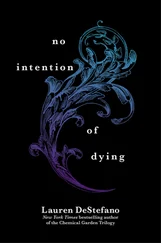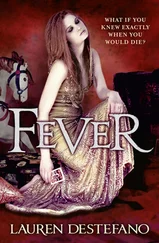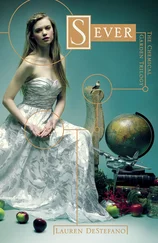1 ...6 7 8 10 11 12 ...62 “Birds couldn’t lift something that heavy,” Pen says. We don’t know very much about birds—they’ve never flown so high as Internment, but we’ve seen images of them taken with the scope. Skinny white blurs traveling alone or as beads in a necklace of V s.
“Well then, you’ve figured out the conflict,” he says. “Anyway, they don’t make it. The story was really more about their trying to reach us. Some think they are, and others say we’re nothing more to them than a giant rock in the sky. Perhaps they think we’re a dusty moon.”
“I wonder about that all the time,” I say.
“Don’t get Morgan started on the ground,” Pen says, rising as the train rolls to a stop. “She’ll be lost in thought for the rest of the day, and I need someone to whisper with if this play is no good.”
Basil spots us as we’re stepping out onto the platform. The gold trim of his jacket matches the flecks of light in his brown eyes. Pen calls it a shame that my eyes aren’t dominant, but I think it would be nice if my children look like Basil. He holds his arm to me, and I look at my velvet glove against his gray suit, imagining we’re figures in a very old image. Though I know I shouldn’t, I imagine that the steps leading down off the platform will go all the way down the sky until we reach the ground.
“How are you?” he asks, so close that his breath reaches the nape of my neck.
“I’ll feel better once they’ve caught the person responsible,” I admit. “My father came home last night with an extra bolt for our door. Every time I look at it, I see that girl’s face.”
“A lot of people in my building are installing locks, too.” He frowns. “They’ll find whoever’s behind this. Internment is only so big. There aren’t many places to hide.”
That’s what has me so afraid. I’ve always liked the smallness of Internment, always liked lying in bed at night and hearing the trains rush by, always on time. But now it’s starting to feel smaller, as though every day since Daphne Leander’s murder has crumbled the edges a bit more, and the city is closing in on me.
Even the seats in the theater feel smaller and closer together, the dim lights getting dimmer.
“Are you okay?” Pen says. “Your cheeks are bright red.”
Basil touches my forehead. “Do you feel sick?” His touch is supposed to comfort me, but all I want is to get away from him, to get away from this air that everyone else is breathing.
“I need to use the water room,” I say.
“I’ll go with you,” Pen says.
“No,” I say, too quickly. “No, you might miss the opening. I’ll be fast, I promise.”
I can see that she’s wary, but she doesn’t try to stop me as I shuffle down the aisle.
With all of the shows about to start, the lobby is empty aside from the ticket vendors, who pay no mind as I stumble toward the water rooms. But when I push the door open, I find that I’m not alone.
Though she’s not in uniform, I recognize the little girl from last night. She’s kneeling on the edge of the sink, tacking a piece of paper over the mirror. But she stops when she sees me, stumbles to her feet, and backs against the wall.
“I didn’t mean to scare you,” I say.
There’s a piece of paper over each of the mirrors. A quick glance and I can see that they’re select passages from Daphne Leander’s essay. All of them are handwritten. Typewriters are a rare luxury afforded to those who write for a living; a past king once considered making them a household item, but decided against it. He said that if words could be easily printed and erased, we would lose our appreciation for what we wrote.
I’d like to ask her about the pages, but she runs past me and pushes her way through the door.
“Wait!” I run after her.
She’s quick, but so am I, and I catch up to her on the sidewalk outside the theater, where she has come to a stop. She doesn’t seem out of breath, and I’m trying to figure out why she stopped, but then I follow her gaze to the building at the end of the block, engulfed in flames.
She looks at me, and her eyes are full of so much pain that it astounds me. They’re the same as the murdered girl’s eyes, and yet different somehow.
“It’s only going to get worse,” she says.
That’s the jumper’s code, if Lex’s similar outlook is any indication.
A patrolman is running from the theater, shouting for us to get back inside. She doesn’t move, though, and I grab her arm and pull her along. She doesn’t resist, but she watches the flames over her shoulder. It was one of Internment’s oldest buildings, back when they were still made of wood as opposed to stone. Over the centuries it has been everything from a prison, back when those still existed, to a recycling plant. In my lifetime it has been only a flower shop. Alice has taken me there dozens of times.
It’s only a few paces back to the theater, but before we’ve reached the doors, the sky has changed. Ash is heavy on the air and it’s as though something has covered the sun. Even the patrolman has stopped to watch. Sirens begin as distant warnings, but soon they’re screaming as the emergency vehicles rush toward the flames.
The girl’s arm is still in my grip and she lets me bring her inside, but then she twists away, presses her hands to the glass doors and watches.
The lobby is crowded now, everyone rushing to windows, calling out the names of their friends. “Are you here with anyone?” I ask.
She shakes her head. “I’m not supposed to be here. I’m supposed to be practicing my music.”
“Come on, then,” I say. “You can come with me. I’m going to find my friends and make sure they’re okay.”
“I don’t know you,” she says.
“Morgan Stockhour,” I say. “There, now you do.”
The room has gotten very loud around us. A woman screams.
The girl looks up at me, hesitating. Some pink glitter has clumped in her eyelashes.
“I’m Amy,” she says.
“Morgan!” Somewhere in the melee, Pen raises her gloved arm. She twists away from Thomas, fighting him and shouldering her way to me. She crashes into me, squeezing me so hard that my feet almost come away from the floor. “What’s happening? They stopped the play, and …”
She sees the smoke through the glass doors for the first time. Her mouth is open and breathless. She pales.
“The flower shop caught fire,” I say, though the words don’t do justice to what I just saw. I should be panicking like everyone around me. I should be frightened. But I feel the same as I did after watching the broadcast, like none of it is real.
“Your parents will be worried,” I tell Amy.
“They won’t notice I’m gone.” She seems like the type who can slip in and out of a place unnoticed, which is likely how she snuck into this theater without formal attire.
Basil wraps his arm around my waist from behind. Thomas does the same to Pen, and for once she seems grateful that he’s there to hold her. Amy stands between us, and we all watch the clouds and the sun get swallowed whole.
It feels like hours before the flames are extinguished. Patrolmen fill the lobby, escorting us from the building to the shuttle in droves. Pen lets Thomas hold on to her, and Basil hasn’t taken his arm from me since we were reunited. Amy walks a pace ahead of me, tugging at the ring on the chain around her neck.
“Where do you live?” Basil asks her as the five of us cram onto a shuttle bench meant to hold four.
“Section three,” she says.
“I’m in two,” he says. “But it’s a short walk back for me. I’ll see you home.”
“You don’t have to,” she says. “I’m old enough to take care of myself.”
“Yes, right, okay, we’re all old enough,” Pen snaps. “But in case you haven’t noticed, Internment has kind of gone into a complete state of lunacy.”
Читать дальше
Конец ознакомительного отрывка
Купить книгу





